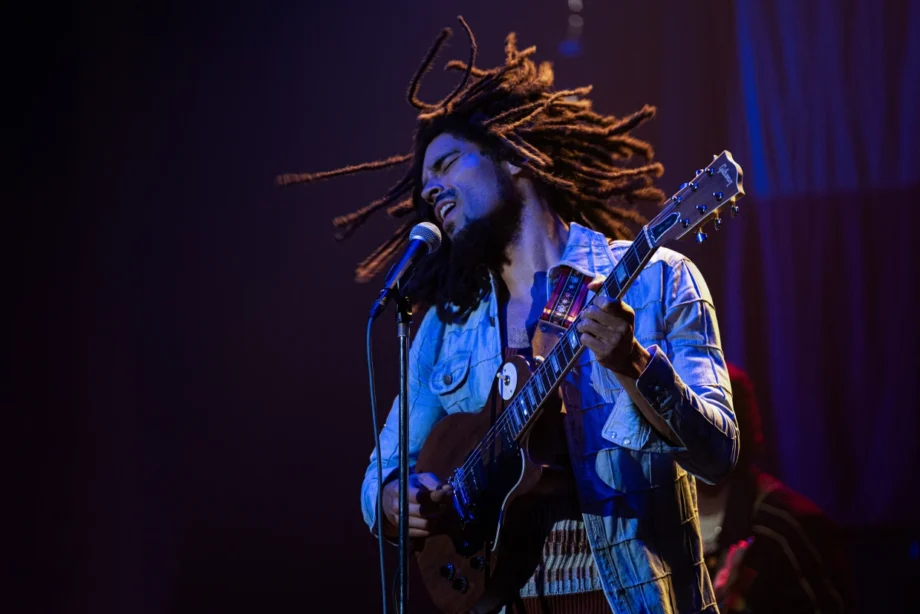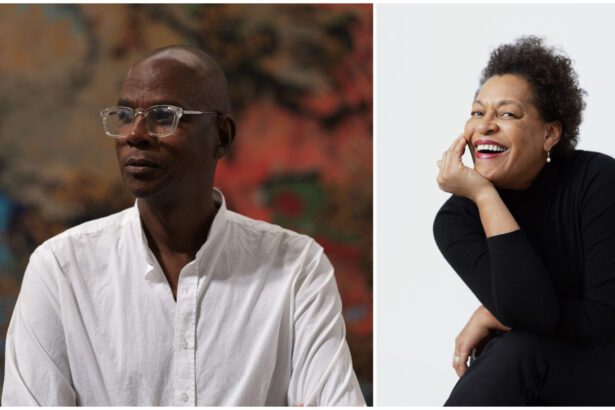The movie ‘One Love,’ a biographical film about Bob Marley, offers a unique perspective by delving into the human side of the iconic musician. Unlike many biopics that tend to glorify larger-than-life figures, the film, led by actor Kingsley Ben-Adir as Bob Marley, and with the involvement of Marley’s family, aims to dial down the grandeur to focus on a deeper exploration of human relationships.
The release of the film coincides with what would have been Marley’s 79th birthday, providing audiences with a reflective look into his life and legacy.
Discussing the film in a video interview with NBC News, Kingsley Ben-Adir expressed, “We were trying to find a bit of Bob’s spirit as a human being. That was my instruction from the family and the intention of the movie that’s produced by them.”
The focus of the film goes beyond Marley’s larger-than-life image that captivated his fellow Jamaicans and fans worldwide, aiming to establish a deeper human connection with the audience.
According to Kingsley, Marley’s lifelong quest for peace, both personally and on a wider scale, holds a universal appeal. He stated, “There’s something about his lifelong journey to spread peace, or find peace for himself, that I feel is very, very universal. We’re all on our own journeys trying to feel connected to something.”
The biopic, titled “Bob Marley: One Love,” takes its name from the iconic song “One Love,” which was part of Marley’s debut album in 1965 with The Wailers.
Director Reinaldo Marcus Green presents a message of unity through the chorus of “One Love” in a film that is set against the backdrop of violent political turmoil in Jamaica in 1976.
Highlighting the political tensions in Jamaica during that time, Green explained, “We wanted to establish the stakes right away. There were two rival parties. And Bob was at the center of this.”
The film depicts Marley’s efforts to unite Jamaicans through a free concert called Smile Jamaica, which is marred by a violent incident where Marley and his wife Rita (played by Lashana Lynch) are shot.
Discussing the assassination attempt, Green said, “Somebody didn’t want him to do that. Somebody wanted him to choose sides.”
After the incident, Rita Marley and their children go to Delaware, while Bob Marley exiles himself to London, where he goes on to produce one of his most iconic albums.
Reflecting on Marley’s resilience, Green remarked, “He doubles down. He creates ‘Exodus.’ Most people would go into hiding forever and never come out.”
The impact of Marley’s music in transcending boundaries was highlighted by Green, underscoring the profound influence of Marley’s music in the realm of human connection.
Ziggy Marley reflects on his father’s upbringing and legacy. He shares that his father was deeply influenced by Bob Marley and his music, explaining that he was named Reinaldo Marcus Green after Marcus Garvey, whom Bob studied about the liberation of Black people and going back to Africa. Ziggy also believes that his father would have wanted humanity to be in a better place in terms of how we coexist with each other, promoting unity and less divisiveness. He emphasizes that unity was at the core of Bob Marley’s music and his message, and hopes that the movie will shed more light on this idea of unification.



